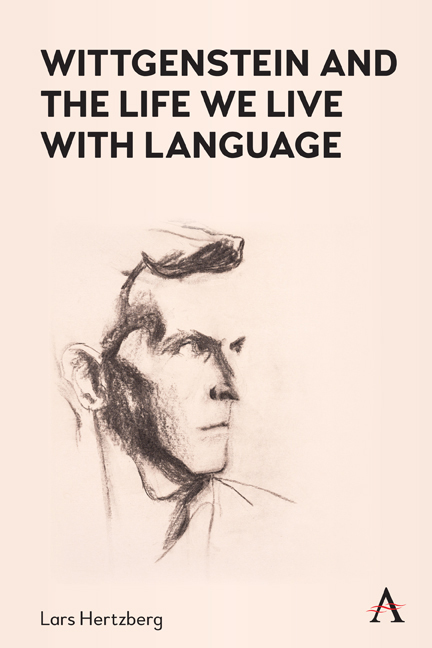Book contents
- Frontmatter
- Dedication
- Contents
- Acknowledgements
- Introduction
- 1 Attending to the Actual Sayings of Things
- 2 The Sense Is Where You Find It
- 3 On Excluding Contradictions from Our Language
- 4 ‘How Do Sentences Do It?’
- 5 On the Need for a Listener and Community Standards
- 6 ‘It Says What It Says’
- 7 Very General Facts of Nature
- 8 Ethics as We Talk It
- 9 Moral Escapism and Applied Ethics
- 10 Reasons to Be Good?
- 11 The Importance of Being Thoughtful
- 12 What’s in a Smile?
- 13 On Aesthetic Reactions and Changing One’s Mind
- Bibliography
- Index
3 - On Excluding Contradictions from Our Language
Published online by Cambridge University Press: 15 September 2022
- Frontmatter
- Dedication
- Contents
- Acknowledgements
- Introduction
- 1 Attending to the Actual Sayings of Things
- 2 The Sense Is Where You Find It
- 3 On Excluding Contradictions from Our Language
- 4 ‘How Do Sentences Do It?’
- 5 On the Need for a Listener and Community Standards
- 6 ‘It Says What It Says’
- 7 Very General Facts of Nature
- 8 Ethics as We Talk It
- 9 Moral Escapism and Applied Ethics
- 10 Reasons to Be Good?
- 11 The Importance of Being Thoughtful
- 12 What’s in a Smile?
- 13 On Aesthetic Reactions and Changing One’s Mind
- Bibliography
- Index
Summary
On the Utility of Logic
Why should we be worried about contradicting ourselves? Students are often taught to think about logic roughly as follows: the reason you should learn the principles of valid argument and make an effort to apply them in your own thinking is that if you do not you will not be thinking rationally. Imagine a tribe in which there was no knowledge, say, of the Law of Contradiction, or where people did not care about it or, worse, defied it on purpose. Things will not go very well for that tribe, it might be thought. People would often go wrong in planning their actions. Even when they have a well-grounded argument, they would often fail to convince their audiences. They would do poorly at figuring things out. To be sure, all of those things happen with us too from time to time even though we do know and accept the Law of Contradiction, but the difference is that either these people do not even care, or they have no way of knowing what went wrong.
The general idea is that allegiance to logic is necessary to protect us from certain forms of intellectual sloppiness or worse. There is a certain desirable quality of thought that logic helps us attain or maintain. We have a choice between making an effort to follow logic or giving up on it.
We might call this the ‘layman justification’ of the teaching of logic. However, professional logicians and philosophers will often justify a concern with logic along different lines. They will argue that the study of the forms of our thought is an important form of inquiry in its own right. It will help us get clear about the nature of what is sometimes called ‘logical reality’, i.e. the character of logical relations, of logical necessity, of valid inference, and so on. Regardless of the practical utility of studying logic, it is considered a worthy pursuit in itself, since it is part of the human quest for knowledge of the way things are. For some philosophers, this quest is closely bound up with the problems of philosophy.
- Type
- Chapter
- Information
- Wittgenstein and the Life We Live with Language , pp. 39 - 52Publisher: Anthem PressPrint publication year: 2022



